
Top Science News
Latest top headlines.
- Heart Disease
- Stroke Prevention
- Bone and Spine
- Today's Healthcare
- Bird Flu Research
- Language Acquisition
- Infant and Preschool Learning
- Child Development
- Biochemistry
- Organic Chemistry
- Pharmacology
- Quantum Computers
- Quantum Computing
- Computers and Internet
- Space Exploration
- Space Missions
- Information Technology
- Artificial Intelligence
- Agriculture and Food
- Food and Agriculture
- Endangered Plants
- New Species
- Oceanography
- Earth Science
- Can the Heart Heal Itself? New Study Says It Can
- Nerve Regeneration After Spinal Cord Injury
- New, Improved Flu-Vaccine Construct
- Influencing When Infants Speak
Top Physical/Tech
- Tinkering With 'Clockwork' Mechanisms of Life
- Quantum Teleportation Over Busy Internet Cables
- Mysteries of Icy Ocean Worlds
- Laser-Based Artificial Neuron: Lightning Speed
Top Environment
- Safer Spuds: Removing Toxins from Potatoes
- Gruel Eaten by Early Neolithic Farmers
- 50 Hidden Relatives of the First Pterosaur
- Novel Hydrothermal Vents On Arctic Ocean Floor
Health News
Latest health headlines.
- Diet and Weight Loss
- Lung Cancer
- Brain Tumor
- Healthy Aging
- Gender Difference
- Breast Cancer
- Patient Education and Counseling
- Diseases and Conditions
- Psychology Research
- Brain Injury
- Nervous System
- Chronic Illness
- Mental Health
- Social Psychology
- Borderline Personality Disorder
- Intelligence
- Exotic Species
- Invasive Species
- Teen Health
Health & Medicine
- Healthy Eating During and After Pregnancy
- Microscopic Discovery in Cancer Cells: Big ...
- Poor Vascular Health and Brain Aging
- Osteosarcomas: Diagnosis and Treatment
Mind & Brain
- Using AI for Medical Chart Review
- Brain Circuits Related to Eating
- Overcoming Glioblastoma Resistance to Chemo
- Slowing of Age-Related Declines in Older Adults
Living Well
- Patience Isn't a Virtue; It's a Coping Mechanism
- Drinking Coffee and Cognitive Function
- An Easy Fix for Struggling Wildflowers: Raking
- Study of Atoms in Tooth Enamel
Physical/Tech News
Latest physical/tech headlines.
- Spintronics
- Spintronics Research
- Sustainability
- Energy and the Environment
- Energy Technology
- Thermodynamics
- Global Warming
- Snow and Avalanches
- Geomagnetic Storms
- Solar Flare
- Astrophysics
- Environmental Issues
- Biotechnology and Bioengineering
- Engineering
Matter & Energy
- Molecular Electron Transfer: Quantum Simulation
- Making Sodium Batteries Better
- Tiny Antennas Monitor Cellular Communication
- Geothermal Aquifers Offer Green Potential
Space & Time
- Melting of Greenland Ice Sheet
- Light Shed On Aurora's Birth
- Clever Trick to Cook Stars
- Meteorological Mysteries On Mars
Computers & Math
- Hidden Hazards of Chemical Mixtures in Rivers
- Machine Psychology: A Bridge to General AI?
- Advancing a Trustworthy Quantum Era
- New Software Unlocks Secrets of Cell Signaling
Environment News
Latest environment headlines.
- Cell Biology
- Dolphins and Whales
- Early Climate
- Air Quality
- Wind Energy
- Severe Weather
- Cows, Sheep, Pigs
- Microbes and More
- Ancient DNA
- Origin of Life
- Evolutionary Biology
- Arts and Culture
- Media and Entertainment
Plants & Animals
- Early Warning of Huge Locust Swarms
- New Cellular Behavior and WWi Flying Aces
- Right Whales Live 130 Years -- Or More
- Flies Vulnerable to Rising Global Temps
Earth & Climate
- Climate Dynamics in Europe
- Long-Term Carbon Sink Called the 'Technosphere'
- Device Monitors Typhoons: No Parachute
- Sugar Solution Fights Infection in Dairy Cows
Fossils & Ruins
- Mysterious Fossil Seed: LA's Climate History
- Chart of Life Extended Nearly 1.5 Billion Years
- What Music Sounded Like Five Centuries Ago
- Prehistoric Rock and Ocean Anoxic Event
Society/Education News
Latest society/education headlines.
- Poverty and Learning
- Educational Policy
- Environmental Awareness
- Mental Health Research
- Child Psychology
- Neuroscience
- Educational Psychology
- Workplace Health
- Educational Technology
- Photography
- Natural Disasters
- Relationships
- Drought Research
- Resource Shortage
Science & Society
- World Cup Soccer Is Getting Faster
- Loss of Urban Trees and Educational Outcomes
- The High Cost of Carbon
- Depression or Anxiety in 3/4 Teens
Education & Learning
- Naughty or Nice? Many Parents Rely On Threats
- Mothers' Language Choices in Bilingual Families
- Context in Decision-Making and Learning
- English as a Second Language: Boys Vs Girls
Business & Industry
- 'Techno-Strain' for Hyperconnected Employees
- Making Waves: Global Trade After Tsunami
- Integrating AI Into Work of Sales Teams
- Two-Way Water Transfers Fight Droughts
- Dark Energy 'Doesn't Exist'
- Large Hadron Collider Regularly Makes Magic
Trending Topics
Strange & offbeat, about this site.
ScienceDaily features breaking news about the latest discoveries in science, health, the environment, technology, and more -- from leading universities, scientific journals, and research organizations.
Visitors can browse more than 500 individual topics, grouped into 12 main sections (listed under the top navigational menu), covering: the medical sciences and health; physical sciences and technology; biological sciences and the environment; and social sciences, business and education. Headlines and summaries of relevant news stories are provided on each topic page.
Stories are posted daily, selected from press materials provided by hundreds of sources from around the world. Links to sources and relevant journal citations (where available) are included at the end of each post.
For more information about ScienceDaily, please consult the links listed at the bottom of each page.
Subscribe or renew today
Every print subscription comes with full digital access
Science News
Featured stories.

Fiber friction is the key to cozy knits
Friction between loops of yarn give knit fabrics the ability to take on a variety of shapes even when no force is applied.

Dogs team up with AI to sniff out cancer

Scientists are building underwater neutrino telescopes in the Mediterranean

Eyelashes’ special features help fling water from the eyes

These are the 5 most popular Science News stories of 2024

50 years ago, astronomers saw the surface of a distant star for the first time


Telehealth helps people get health care, but access may soon be in limbo
Trending stories.

The oldest known ritual chamber in the Middle East has been found

These scientific feats set new records in 2024

Stage 0 breast cancer patients may not need to rush to surgery

Sign Up For the Latest from Science News
Headlines and summaries of the latest Science News articles, delivered to your inbox
Thank you for signing up!
There was a problem signing you up.
Spotlight on Health

COVID-era telehealth laws made health care more accessible for rural patients, but telehealth might not be as easy to access next year.
Deaths related to the cold have grown since 1999 in the U.S.
Sponsored partner content.

25% Off All Science News Gear!
This article has been paid for and developed by Society for Science.
Science News Magazine

December 14, 2024 Vol. 206 No. 10
Climate change made 2024 the hottest year on record. The heat was deadly
Putting vampire bats on treadmills reveals an unusual metabolism, antimatter could travel by truck, a test with protons shows.

Featured Media
Science News drew millions of visitors to our website this year. Here’s a recap of the most-read and most-watched news stories of 2024.

Archaeology’s top discoveries of 2024 include preserved brains and a lost city

Space missions spanned the solar system in 2024

Generative AI is an energy hog. Is the tech worth the environmental cost?
Follow science news.
- Follow Science News on X
- Follow Science News on Facebook
- Follow Science News on Instagram
More Stories

These are our favorite animal stories of 2024
Sheep earwax can record a dangerous diet, here are 8 remarkable scientific firsts of 2024.

Dietary evidence bolsters Clovis hunters’ reputation as mammoth killers
A phone app could help people have lucid dreams, world record speeds for two olympics events have fallen over time. we can go faster.

An unexpected ice collapse hints at worrying changes on the Antarctic coast
From electric cars to wildfires, how trump may affect climate actions.

Astronomers see the astrosphere of a sunlike star for the first time
This is the first close-up image of a star beyond our galaxy, a cosmic census triples the known number of black holes in dwarf galaxies.

Notre Dame is reopening. What does that mean for its acoustics?
Radioactive beams give a real-time view of cancer treatment in mice, thunderstorms churn up a ‘boiling pot’ of gamma rays , health & medicine.

Here’s how public health fared in 2024
Cancer screening and quitting smoking have saved nearly 6 million lives, these are the viruses that defined 2024.

Earth’s inner core may be changing shape
The 2004 tsunami killed hundreds of thousands. are we better prepared now, what leads rivers to suddenly change course, science & society.

These are Science News ’ favorite books of 2024
A new biography of benjamin franklin puts science at the forefront, this ‘hidden figure’ of entomology fought for civil rights.
Subscribers, enter your e-mail address for full access to the Science News archives and digital editions.
Not a subscriber? Become one now .
Recent scientific breakthroughs that could change the world
From green energy to medical marvels
- Newsletter sign up Newsletter
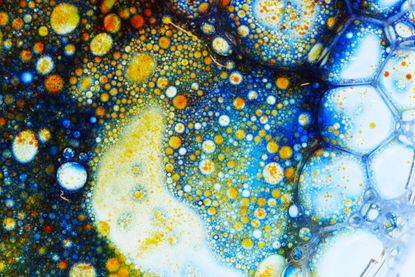
1. Designing a sunlight reactor
2. panda stem cells, 3. monkey communication, 4. finding the root cause of lupus, 5. restoring brain cells, 6. menstrual blood as a diagnostic tool, 7. cell therapy for melanoma, 8. rhino ivf.
Scientists are making new discoveries every day. Although some may fly under the radar, many of these findings are groundbreaking and have the potential to change the world as we know it.
Scientists have created a prototype reactor that can harvest hydrogen fuel using only sunlight and water. Green hydrogen , a "climate-neutral process that uses renewable energy sources to create hydrogen," has been a "growing conversation among renewable fuel experts," said Popular Mechanics . However, "only .1% of all hydrogen production can be described as 'green,'" because it "requires so much renewable energy to create, making the process cost prohibitive."
A paper published in the journal Frontiers in Science details a reactor built with photocatalytic sheets that can split water into its elements (hydrogen and oxygen) using the power of the sun. "Obviously, solar energy conversion technology cannot operate at night or in bad weather, but by storing the energy of sunlight as the chemical energy of fuel materials, it is possible to use the energy anytime and anywhere," said Popular Mechanics. However, the product is still in its infancy. "The most important aspect to develop is the efficiency of solar-to-chemical energy conversion by photocatalysts," a senior author of the paper, Kazunari Domen, said in a statement . "If it is improved to a practical level, many researchers will work seriously on the development of mass production technology and gas separation processes, as well as large-scale plant construction."
Subscribe to The Week
Escape your echo chamber. Get the facts behind the news, plus analysis from multiple perspectives.

Sign up for The Week's Free Newsletters
From our morning news briefing to a weekly Good News Newsletter, get the best of The Week delivered directly to your inbox.
Although giant pandas are no longer considered endangered , they are still a vulnerable species. The good news is that scientists may have found a way to support their survival by taking giant panda skin cells and transforming them into stem cells, according to a study published in the journal Science Advances . The stem cells can then be "nudged into becoming any kind of cell in the body" and "could help researchers breed more giant pandas (Ailuropoda melanoleuca) and develop treatments for their diseases," said Science News .
Stem cells are a "self-renewing, inexhaustible source of material from endangered species, capable of regenerating various cell types as needed," and they "could serve as a crucial tool in preventing species extinction," said the study. Successfully creating the stem cells was a difficult process because researchers have to go "back to the basics" for every animal — and "what worked on humans and mice did not work for pandas," Pierre Comizzoli, a gamete biologist at the Smithsonian's National Zoo, said to The Scientist . While it will still be a while before we see a lab-grown giant panda, scientists want to use the cells to create panda embryos.
Marmoset monkeys use names to refer to each other, according to a study published in the journal Science . Scientists "recorded spontaneous 'phee-call' dialogues between pairs of marmoset monkeys," said the study. "We discovered that marmosets use these calls to vocally label their conspecifics. Moreover, they respond more consistently and correctly to calls that are specifically directed at them." This type of behavior had only been seen in humans, elephants and dolphins previously. "This is the first time that we have seen this in non-human primates," David Omer, the lead author of the study, said to CNN .
The study raises questions as to whether this form of communication is rare or if it has simply not been researched enough. "I think that as we refine our paradigms and our techniques of acoustic analysis, we will find that many other social animals have more complexity in their communication systems than we currently realize," Con Slobodchikoff, a professor emeritus of biology at Northern Arizona University, said to The Washington Post . "This paper is a good nudge toward us changing our views about animal capabilities and intelligence."
Scientists have discovered a cause of lupus and a possible way to reverse it. A study published in the journal Nature points to abnormalities in the immune system of lupus patients that is caused by a molecular abnormality. "What we found was this fundamental imbalance in the types of T cells that patients with lupus make," Deepak Rao, one of the study authors, said to NBC News . Specifically, "people with lupus have too much of a particular T cell associated with damage in healthy cells and too little of another T cell associated with repair," NBC News said.
The good news is that this could be reversed. A protein called interferon is mainly to blame for the T-cell imbalance. Too much interferon blocks another protein called the aryl hydrocarbon receptor, which helps regulate how the body responds to bacteria or environmental pollutants. In turn, too many T-cells are produced that attack the body itself. "The study found that giving people with lupus anifrolumab, a drug that blocks interferon, prevented the T-cell imbalance that likely leads to the disease," said NBC News.
Scientists have found a way to repair brain cells impaired by a rare genetic disorder. A study published in the journal Nature found that a drug called antisense oligonucleotide allowed human neurons to develop normally despite carrying a mutation due to a genetic disorder called Timothy syndrome. "It's the beginning of a new era for many of these diseases that we first thought were untreatable," Dr. Huda Zoghbi, a professor at Baylor College of Medicine, said to NPR .
Timothy syndrome is caused by a mutation of a single gene in a person's DNA . The new drug develops an "antisense nucleotide, a small piece of synthetic genetic material that alters the proteins made by a cell," said NPR. The antisense nucleotide for Timothy syndrome was designed to replace a defective protein with a healthy version — "in effect counteracting the mutation responsible for the disorder." This same approach could potentially be used to treat other genetic disorders, "including some that cause schizophrenia, epilepsy, ADHD and autism spectrum disorder."
Menstrual blood can potentially be used to measure blood sugar. In early 2024, the U.S. Food and Drug Administration (FDA) approved a new diagnostic menstrual pad called the Q-Pad and A1C Test by the biotechnology research company Qvin. The Q-Pad is an organic cotton period pad that "collects the blood, which a laboratory then uses to analyze the individual's average blood sugar over three weeks through the A1C biomarker," said Forbes .
"There is a lot of clinically relevant information in this bodily fluid that comes every month," Sara Naseri, the CEO and co-founder of Qvin, said to Axios . The company wants to "prove that period blood is a noninvasive, convenient medium that doctors have been overlooking when it comes to performing a variety of tests," said The New Yorker . Diagnostic capabilities can potentially be extended to diagnose HPV or endometriosis.
The U.S. Food and Drug Administration (FDA) approved the first cellular therapy for aggressive forms of melanoma . The treatment, called Amtagvi, is "designed to fight off advanced forms of melanoma by extracting and replicating T cells derived from a patient's tumor," said NPR . These cells are also called tumor-infiltrating lymphocytes (TIL). T cells are integral in the immune system but can become "dysfunctional inside tumors."
"The approval of Amtagvi represents the culmination of scientific and clinical research efforts leading to a novel T cell immunotherapy for patients with limited treatment options," Dr. Peter Marks, the director of the FDA's Center for Biologics Evaluation and Research, said in a statement . The treatment won't work for everyone, but research by the National Institutes of Health showed a "56% response rate among patients with melanoma, and 24% of patients had a complete disappearance of their melanoma, regardless of where it was," Axios said. "This is the tip of the iceberg of what TIL can bring to the future of medicine," Patrick Hwu, the CEO of Moffitt Cancer Center, said to Axios .
Scientists were able to impregnate a southern white rhino using in-vitro fertilization (IVF). Researchers in Kenya implanted a southern white rhino embryo into another of the same species using the technique in September 2023, resulting in a successful pregnancy. The technique could be used to save the northern white rhino from total extinction. "We achieved together something which was not believed to be possible," Thomas Hildebrandt , the head of the reproduction management department at the Leibniz Institute for Zoo and Wildlife Research, said in a press conference.
There are two species of white rhinos: northern and southern. The northern white rhino is on the verge of extinction due to poaching, with only two females remaining. Luckily, scientists have sperm preserved from the last male rhino, which could be combined with an egg from the female and implanted into a southern white rhino female to act as a surrogate. Using a white rhino embryo to test the procedure was a "proof of concept" which is a "milestone to allow us to produce northern white rhino calves in the next two, two and a half years," Hildebrandt said.
Sign up for Today's Best Articles in your inbox
A free daily email with the biggest news stories of the day – and the best features from TheWeek.com
Devika Rao has worked as a staff writer at The Week since 2022, covering science, the environment, climate and business. She previously worked as a policy associate for a nonprofit organization advocating for environmental action from a business perspective.
- Harold Maass, The Week US

Cartoons Artists take on excuses, pardons, and more
By The Week US Published 22 December 24

The Explainer Bashar al-Assad and his father, Hafez, ruled Syria for more than half a century but how did one family achieve and maintain power?
By The Week UK Published 22 December 24

The Week's daily medium sudoku puzzle
By The Week Staff Published 22 December 24
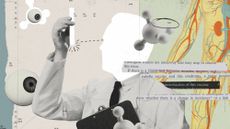
In the Spotlight Science and politics do not seem to mix
By Devika Rao, The Week US Published 18 December 24
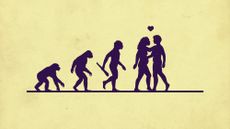
Under the radar The two began interbreeding about 47,000 years ago, according to researchers
By Justin Klawans, The Week US Published 18 December 24
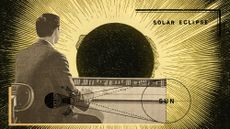
Under the radar The European Space Agency's Proba-3 mission gives scientists the ability to study one of the solar system's most compelling phenomena
By Rafi Schwartz, The Week US Published 16 December 24
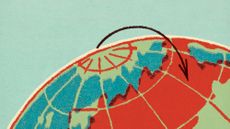
Under the radar The pole is on the move
By Devika Rao, The Week US Published 2 December 24
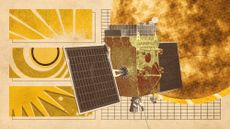
Under the Radar Emerging space power's first solar mission could help keep Earth safe from Sun's 'fireballs'
By Harriet Marsden, The Week UK Published 1 December 24

Speed Read Albert Einstein's 1915 theory of general relativity has been proven correct, according to data collected by the Dark Energy Spectroscopic Instrument
By Peter Weber, The Week US Published 20 November 24

Under the Radar A lot can happen in 200 million years
By Devika Rao, The Week US Published 18 November 24

Speed Read An analysis of skeletal remains reveals that some Mount Vesuvius victims have been wrongly identified
By Peter Weber, The Week US Published 8 November 24
- Contact Future's experts
- Terms and Conditions
- Privacy Policy
- Cookie Policy
- Advertise With Us
The Week is part of Future plc, an international media group and leading digital publisher. Visit our corporate site . © Future US, Inc. Full 7th Floor, 130 West 42nd Street, New York, NY 10036.
Thank you for visiting nature.com. You are using a browser version with limited support for CSS. To obtain the best experience, we recommend you use a more up to date browser (or turn off compatibility mode in Internet Explorer). In the meantime, to ensure continued support, we are displaying the site without styles and JavaScript.
- View all journals
- Explore content
- About the journal
- Publish with us
- Sign up for alerts
Top articles
Explore the most downloaded* papers from Scientific Reports in 2023. Featuring authors from around the world, these collections highlight valuable research from an international community spanning the natural and clinical sciences.
Top articles from previous years can be found on our Collections page .
*Data obtained from SN Insights which is based on Digital Science's Dimensions.
Quick links
- Explore articles by subject
- Guide to authors
- Editorial policies

IMAGES
COMMENTS
2 days ago · ScienceDaily features breaking news about the latest discoveries in science, health, the environment, technology, and more -- from leading universities, scientific journals, and research ...
3 days ago · Read the latest Research articles from Scientific Reports. Your privacy, your choice. We use essential cookies to make sure the site can function. We also use optional cookies for advertising ...
Dec 14, 2024 · Here are 8 remarkable scientific firsts of 2024 By Sophie Hartley December 16, 2024. ... membership organization dedicated to public engagement in scientific research and education (EIN 53-0196483
Google Scholar provides a simple way to broadly search for scholarly literature. Search across a wide variety of disciplines and sources: articles, theses, books, abstracts and court opinions.
ScienceDirect is the world's leading source for scientific, technical, and medical research. Explore journals, books and articles. ScienceDirect.com | Science, health and medical journals, full text articles and books.
Find breaking science news and analysis from the world's leading research journal.
Dec 11, 2024 · In early 2024, the U.S. Food and Drug Administration (FDA) approved a new diagnostic menstrual pad called the Q-Pad and A1C Test by the biotechnology research company Qvin.
3 days ago · The strength of Science and its online journal sites rests with the strengths of its community of authors, who provide cutting-edge research, incisive scientific commentary, and insights on what’s important to the scientific world. To learn more about how to get published in any of our journals, visit our guide for contributors.
We publish the latest science news and breakthroughs made at top universities and research facilities. Our expertly curated content dives deep into the complexities of scientific research, unveiling the incredible discoveries and cutting-edge advancements that continue to reshape our understanding of the universe and our place within it.
Explore the most downloaded* papers from Scientific Reports in 2023.Featuring authors from around the world, these collections highlight valuable research from an international community spanning ...